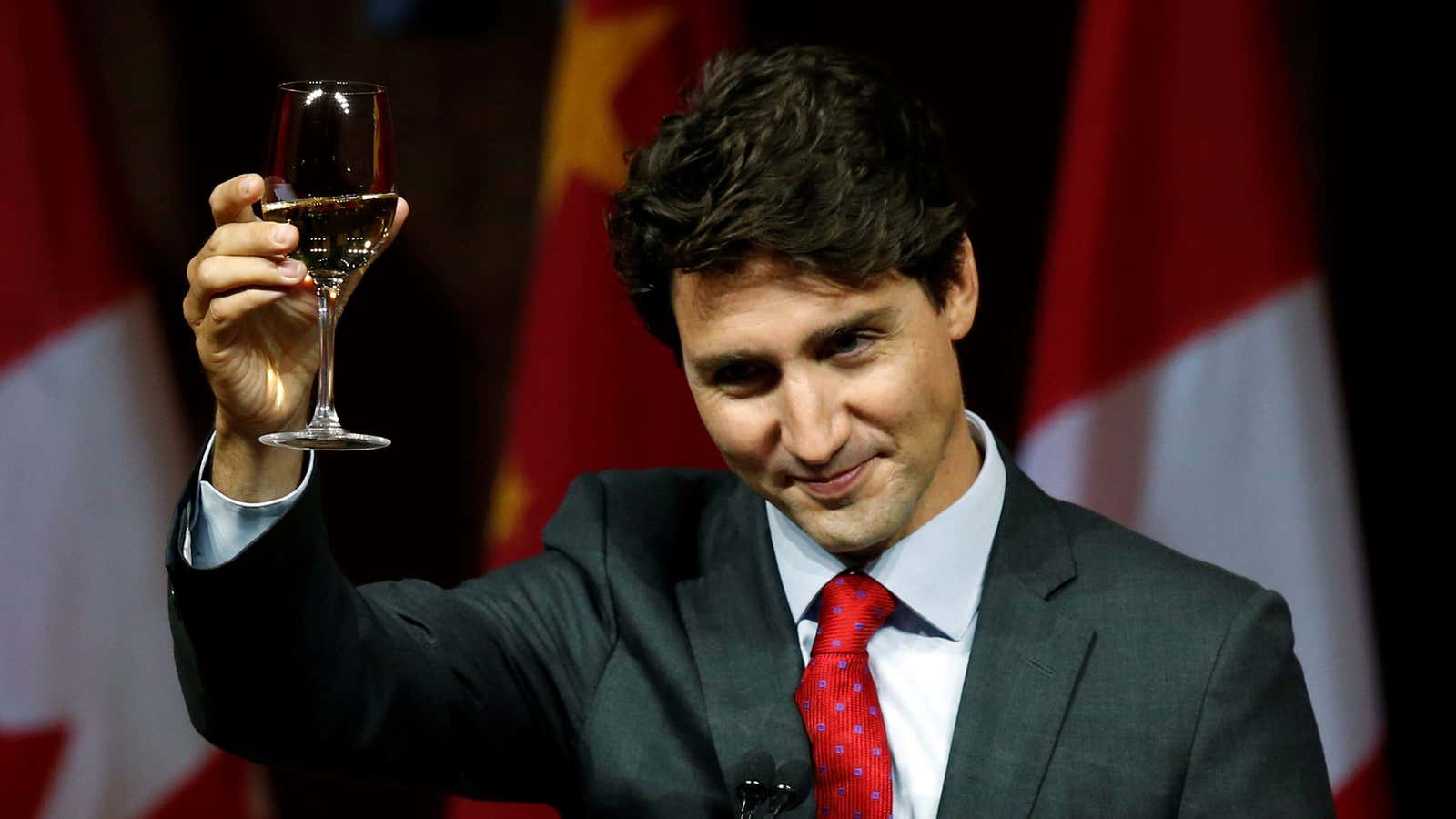Good luck trying to pick up a bottle of foreign wine while shopping for groceries in British Columbia. A local regulation in the Canadian province only allows the sale of local wine on grocery store shelves. The US says that this is in violation of Canadian trade obligations and has initiated a dispute at the World Trade Organization.
“The discriminatory regulations implemented by British Columbia intentionally undermine free and fair competition,” Michael Froman, the US trade representative, said in a prepared statement. “Canada and all Canadian provinces, including BC, must play by the rules.”
The move comes just days before the end of Froman’s tenure and amid uncertainty about trade relations between the two nations following the US abandonment of the Trans-Pacific Partnership. This issue will have to be resolved by president-elect Donald Trump’s administration after Froman’s likely successor, Robert Lighthizer, takes office.
Wine from the rest of Canada and abroad is sold at 671 private liquor stores in British Columbia, and more than 200 provincial liquor stores in the province, CBC reports. It can be sold at BC grocery stores, but only in a segregated area of the store with separate cash registers. The USTR’s statement said it was unaware of any store in the provence with that arrangement.
“B.C. wines only make up 17 per cent of all wine sold in the province, so everything else that’s sold is imported,” Miles Prodan, president of the B.C. Wine Institute, told CBC. “So they’re not harmed by this.”
Canada is the US’s largest export market, and it became the largest importer of US wine when it overtook the UK in 2008.
It did so at a time when the total value of US wine exports has doubled.
The first step towards dispute resolution at the WTO is a period where representatives from both countries can meet to negotiate an amenable solution. Failing that, the US will call for a panel at the WTO to investigate the matter.
